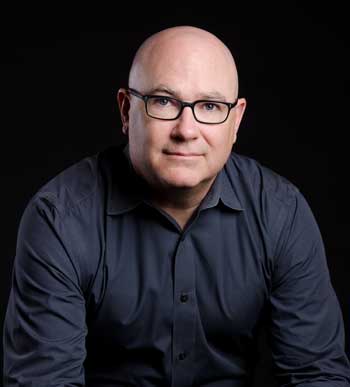 |
About the Author |
|
Owen J. Hurd is a writer and editor with extensive experience in book publishing. He worked for two Chicago publishers, Loyola Press and Bonus Books. He has also edited books for various university presses and trade book publishers. His first book, Chicago History for Kids, was named one of the Best of the Best Books in 2007 by the Chicago Public Library. Hurd lives with his wife and son in Chicago, Illinois. Author Q & A What were the most surprising things you learned when researching and writing After the Fact? I found out just how human our country's famous historical figures were. It's natural to idolize our national heroes or demonize our country's villains and scoundrels. For better or worse, the things I learned about these people gave them depth and contours that were lacking in my previous, sometimes superficial, conceptions of them. For example, a figure like Lou Gehrig had always been, for me, frozen in time as the guy who gave the "luckiest man" speech at Yankee Stadium. But he lived for almost two more years, never complaining or feeling sorry for himself. He even got a job for a time as a NYC parole board officer. One of his clients was a delinquent Rocky Graziano. All the while Gehrig's wife and doctors deceived him about the nature of his condition and his chances for recovery--something that would be unthinkable today. What trends or common themes did you notice when writing this book? For one thing, after their major discoveries, explorers tended to lead a tough life and often met grisly ends or stumble through undistinguished second careers. Christopher Columbus and Meriwether Lewis proved to be disastrously inept governors. James Cook wore out his welcome in a return trip to the Sandwich Islands, a blunder that cost him his life. Another common theme is that greatness of one kind often does not carry over to other aspects of our national heroes' lives. William Clark, Nathaniel Hawthorne and Samuel B. Morse found themselves on the wrong side of the slavery debate. Jesse Owens struggled to make a living all his life and was eventually convicted of tax evasion. Some of the country's worst outlaws had positive sides. Frank James refused—for most of his life—to profit from his exploits as a bank robber. And Samuel Sewall, one of the Salem Witch Trial judges would later champion the rights of Native and African Americans. Finally, major disasters tend to bring out the best and worst in people. Like now, people all over the world bond together and make generous donations to provide aid to those afflicted by storms, earthquakes, and fires. At the same time these disasters trigger class tensions, violence and rumor-mongering. |

|